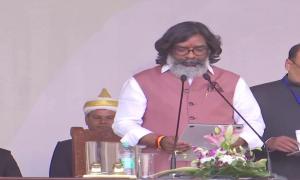The court adjourned an appeal hearing of Ahmed Omar Saeed Sheikh, a British Islamic militant who was given the death sentence for his involvement in the killing of Pearl in Karachi in 2001.
Omar was convicted in 2002 by an anti-terrorism court in Hyderabad of involvement in the murder of the Wall Street journalist who came down to Pakistan to investigate a shoe bomber lead in the wake of the 9/11 attacks.
"We are disappointed. We were expecting the trial to continue on a day-to-day basis and expecting a verdict," defence lawyer Khawaja Sultan said.
The appeal hearing had got underway after several adjournments in the last four years and the defence lawyers were expecting a conclusion to Omar's appeal this time.
The court adjourned the case indefinitely after the public prosecutor said the appeal needed to be heard by a full Bench instead of the existing two-man bench of the high court.
"What can we say? Everyone agreed we should have a day to day hearing but things changed today after we had given our initial argument on Monday," Sultan said.
Sheikh is lodged in a high security prison after being shifted to Karachi from Hyderabad where he was placed in solitary confinement since being convicted while his three other accomplices were given the life sentence.
The prosecution argued the three men should also be given the death sentence.








More from rediff